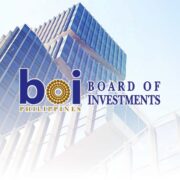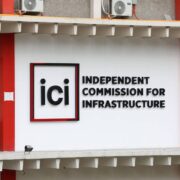EdTech can supercharge education outcomes

The Philippine education sector is at a critical juncture. Poor learning outcomes are compounded by disparities in access to education, teacher shortages, and inadequate resources and infrastructure. As is the case elsewhere, these issues are exacerbated by low-income levels and climate change, with extreme weather events disrupting education and causing learning losses.
The Second Congressional Commission (EdCom II) Year Two report highlights that as much as 50 percent of the school year is lost due to natural disasters and calamities. The Philippines ranks as the most disaster-prone country in the world, resulting in substantial costs and disruptions to the education system.
Technology offers a transformative solution. Over the past two decades, digital tools have increasingly supplemented learning, a trend accelerated by the COVID-19 pandemic. This shift underscores the potential of educational technology (EdTech) to reshape learning.
EdTech encompasses digital tools, platforms, and technologies designed to enhance teaching and learning. A recent research study, published by the GSMA Mobile for Development in partnership with the British Embassy in Manila, explores the potential of EdTech to address the Philippines’ educational challenges.
Titled “‘The Future of Learning: The Impact of EdTech on Learning Outcomes in the Philippines,” the report highlights innovative EdTech initiatives in the Philippines, other low- and middle-income countries, and the United Kingdom and Australia that showcase their impact on access, equity, and learning outcomes.
This project is aligned with efforts of the UK government to help partner countries implement digital strategies. It stems from the understanding that EdTech, if used wisely, can transform learning and national development.
The report identifies six key use cases of EdTech that have been impactful at the kindergarten, primary, and secondary education levels: Online learning platforms, offline learning platforms, adaptive learning, learning management systems (LMS), gamified learning platforms, and virtual classrooms. While LMS and online learning platforms currently dominate, advancements in artificial intelligence (AI) are driving innovations in gamified and adaptive learning systems, offering new ways to engage students.
Given the Philippines’ geographical diversity and cultural richness, EdTech solutions must be inclusive and accessible. Offline learning platforms are crucial for areas with unreliable connectivity to ensure equitable learning opportunities. Emerging technologies such as AI robotics, natural language processing, and computer vision are driving advancements in gamified learning and adaptive learning.
To ensure the Philippines is ready to deploy technology-driven education services at scale, it is essential to build a robust foundation of digital connectivity and infrastructure. The Philippines is already well-positioned for this. With growing smartphone use, mobile internet adoption, and high 5G uptake, 46 percent of all connections in the country are projected to be 5G-enabled by 2030.
The government is prioritizing digital connectivity with planned investments in fiber broadband and infrastructure. The Maharlika Investment Fund has identified digital connectivity as a priority investment area for 2025, while mobile network operators continue to strengthen data infrastructure.
Alongside building a strong digital ecosystem, the report recommends empowering educators through digital skills and resources; fostering multistakeholder collaboration between government and nongovernment stakeholders; creating an enabling environment for testing and scaling EdTech solutions, and developing student-centered approaches to design effective EdTech solutions.
Technology can be a game-changer in addressing the learning crisis. By embracing EdTech, the Philippines has an opportunity to transform its education system, empower students, and prepare them for a rapidly changing world. It is a vital tool to build a resilient and equitable system, improve learning outcomes, and prepare students for the future.
—————-
Laure Beaufils is currently the ambassador of the United Kingdom to the Philippines. GSMA Mobile for Development has worked with EdCom II to highlight the potential of educational technology in the Philippines.

















